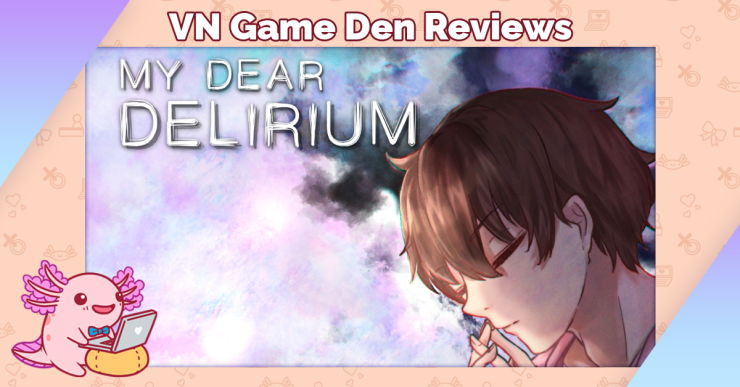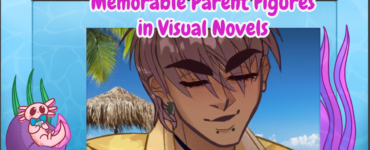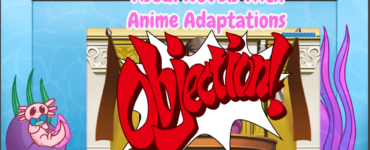My Dear Delirium is a short, free visual novel developed by Averona. In this psychological thriller, take the role of two characters with conflicting points of view. Whose perspective will you trust?
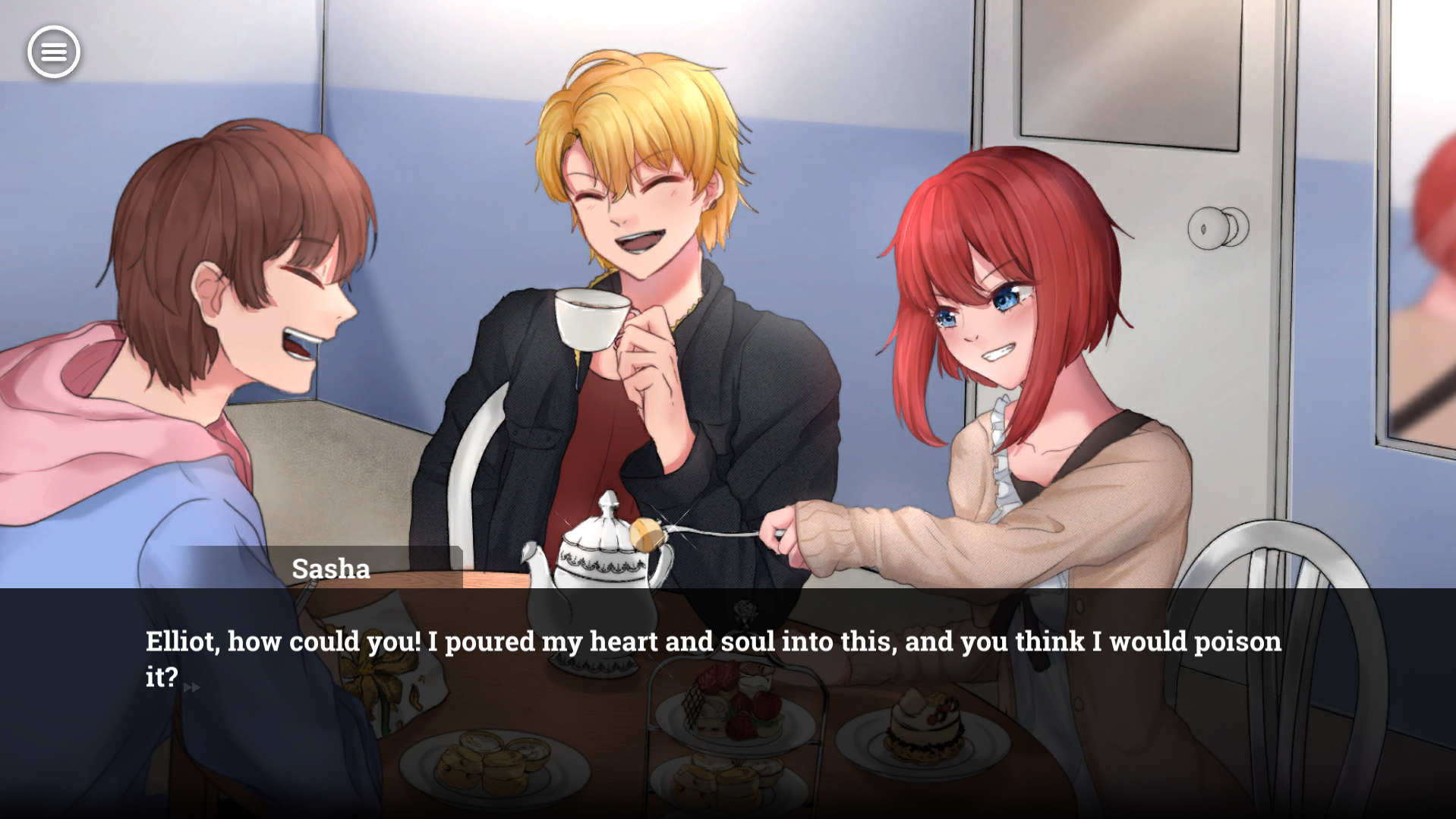
The Story:
My Dear Delirium starts innocently enough, with Elliot and his two friends having a meal together. We learn about the dynamic between the trio as time progresses. Despite Jacob and Sasha’s amiable time with Elliot, he can’t seem to remember details about them, including where or when the trio had met. That’s when things begin to get a bit tricky.
In this visual novel, you get to swap between two main characters in order to see their differing perspectives of the situation. The stark contrast between what these two characters see is subtle at first, and then suddenly glaring as things come crumbling down.
Averona does an amazing job setting up the tension for this story. Small details are added in to hint at the big reveal. Some of these hints you may not even recognize on your first playthrough, but they become apparent as you play more. I’m thoroughly impressed by the game’s narrative, especially considering the game’s length.
One playthrough will net you around thirty minutes of game time. That’s not a lot of time to explore a complex psychological tale, yet Averona pulls it off in a creative way. By utilizing multiple perspectives, full voice acting, and CG art, the developers are able to create an engaging and suspenseful experience.
However, with a small game comes an unavoidable struggle—illustrating the story’s lore in a way that’s palatable for players. While I was very much hooked, I feel as if more questions than answers had arrived by the end of my playthrough.
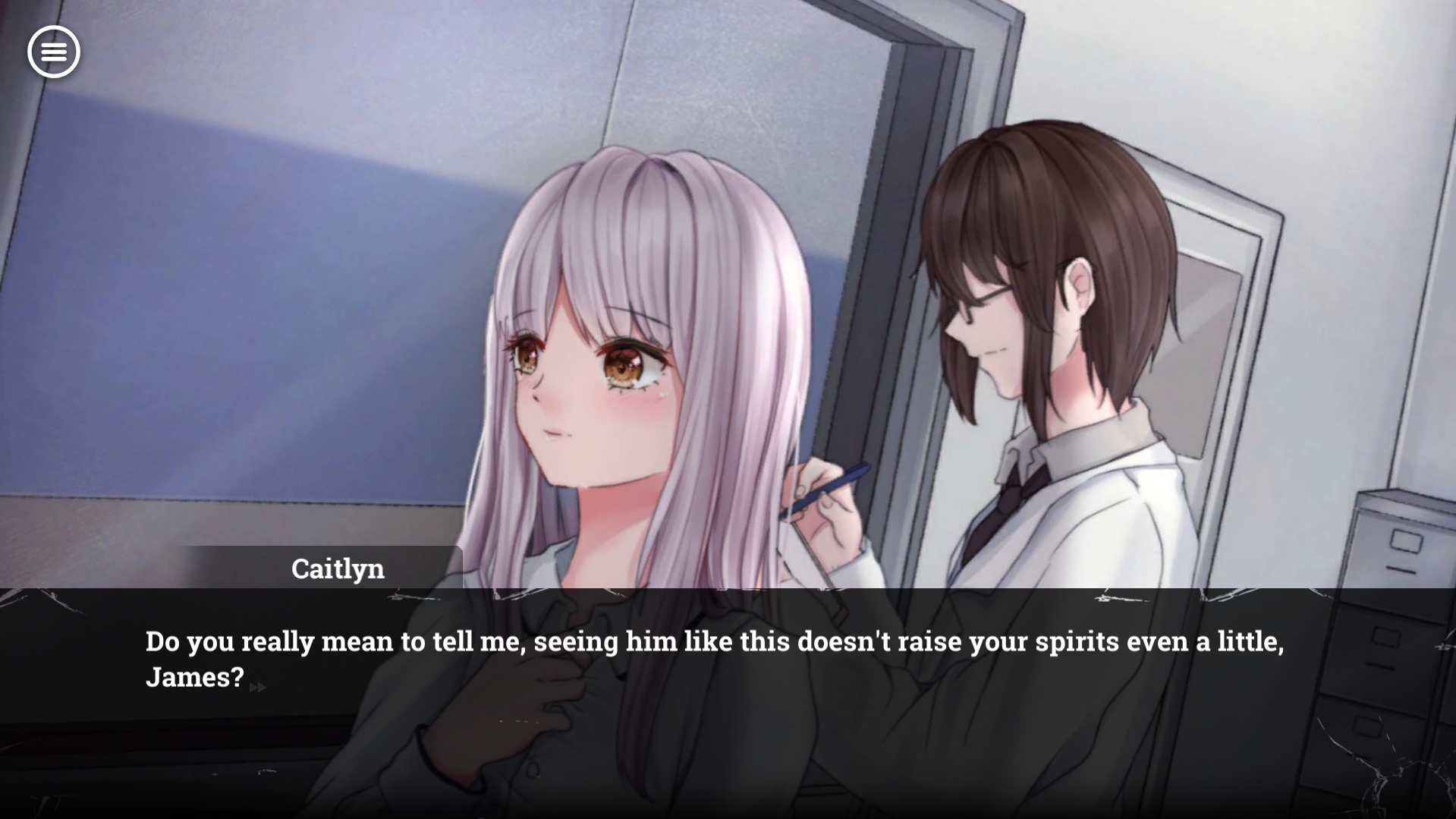
Art and Voice Acting:
My Dear Delirium features full voice acting from a talented cast. The voice actors are able to give life to the characters and their struggles, making everything feel more immersive to the player. A really nice addition is the way voices change in a certain scene depending on whose perspective you’re playing through.
The game doesn’t utilize any sprites, instead opting for CGs of key scenes. These are beautifully done, some even animated to bring more attention to the characters. However, the art doesn’t change frequently enough to show the characters’ change of expressions. This is most apparent in the first scene as Elliot discusses tense emotions, but all three characters are still smiling and laughing.
The game’s UI is minimal. The biggest issue I had navigating was the lack of skip function and the need to click to advance text instead of being able to use the space bar (or even autoplay). This is especially frustrating for a game the developers want you to play multiple times in order to get the full story.
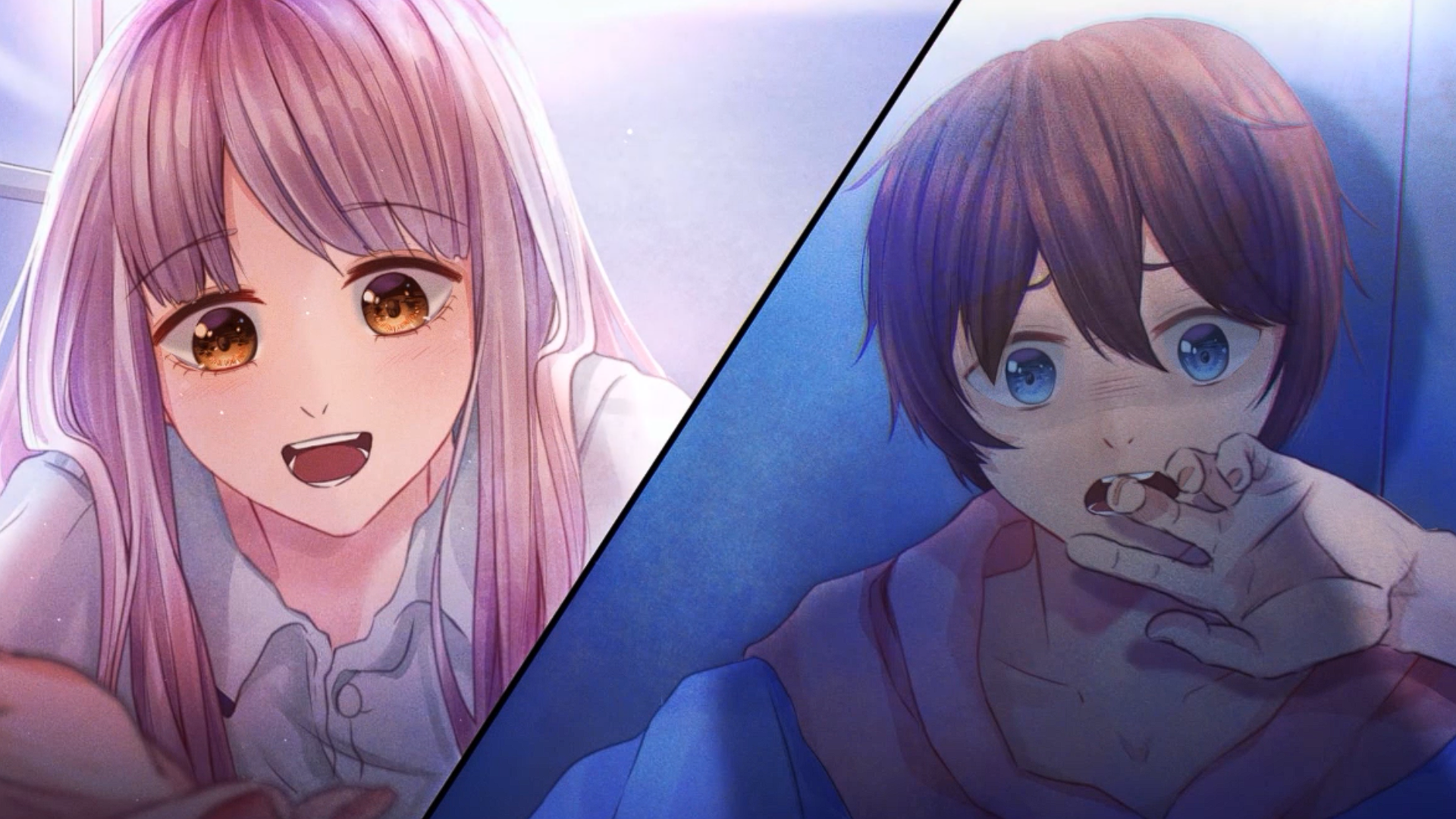
The Verdict:
My Dear Delirium is an engaging psychological game with full voice acting and gorgeous CG art. If you have the time, I wholeheartedly recommend playing the game in a single sitting.
You can play My Dear Delirium for free on itch.io.

